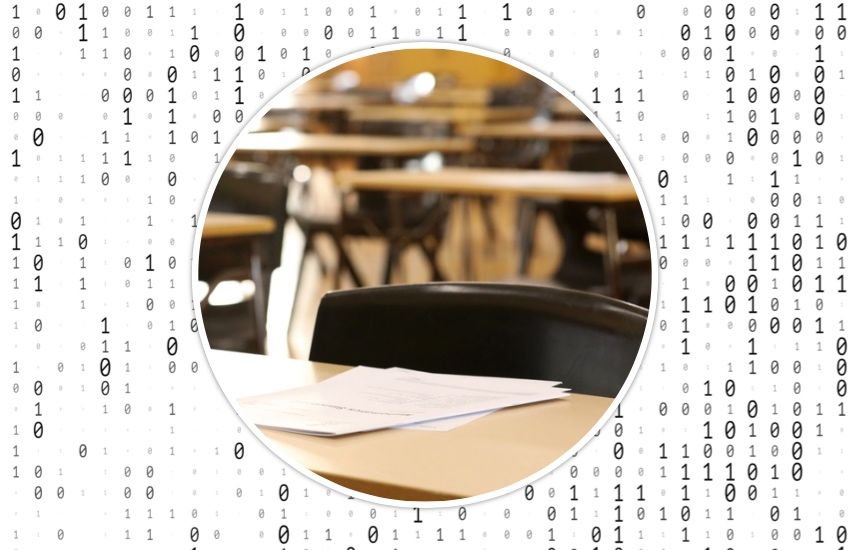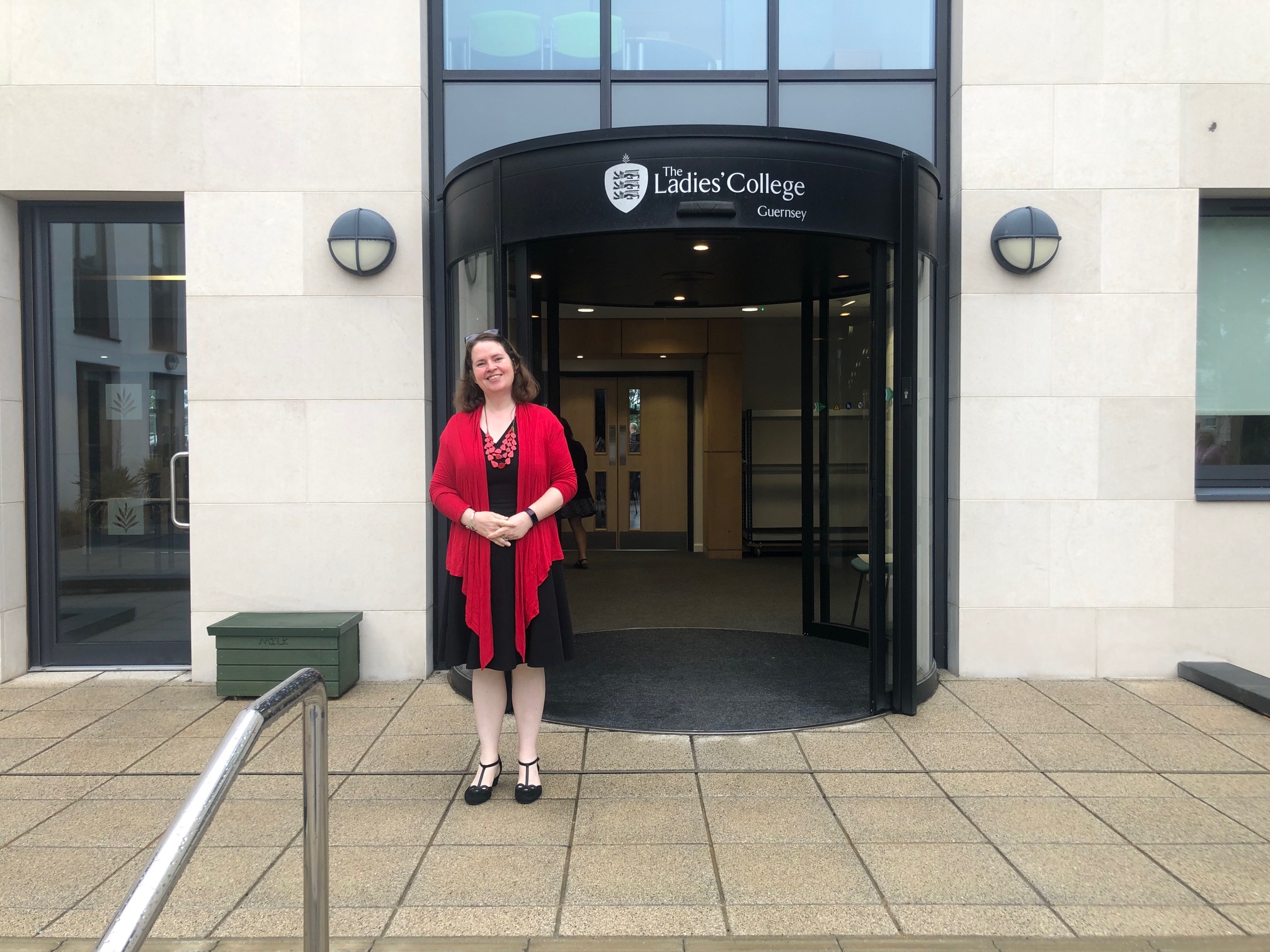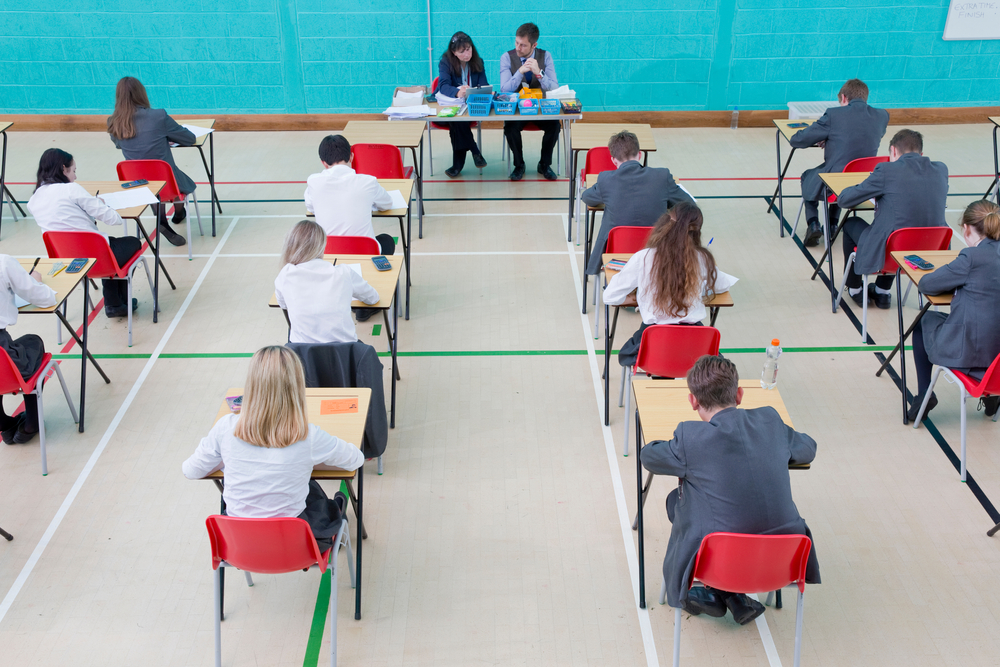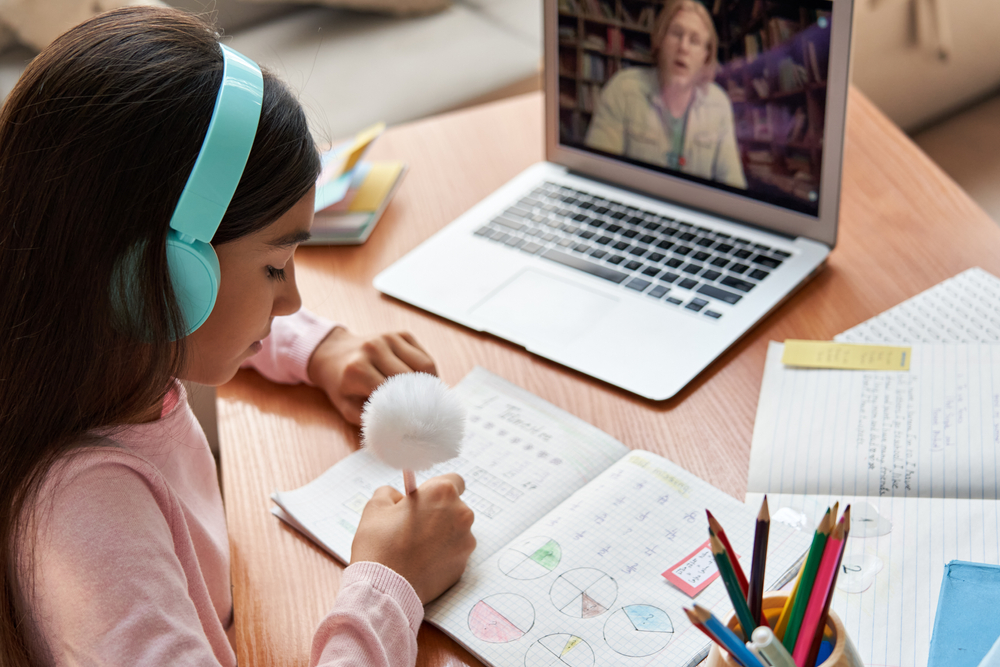


The Ladies’ College Principal has said it "would be negligent" not to investigate questions surrounding whether current education systems are fit for purpose.
Daniele Harford-Fox spoke on the issue after the Tony Blair Institute for Global Change (TBGC) issued a report stating that the current system “restrict schools’ leeway” to focus on skills outside of rote learning.
The report (available HERE) highlighted the rapid advancement of new technologies and the Fourth Industrial Revolution, stating that they were “profoundly altering society”.

Pictured: Ladies' College Principal, Daniele Harford-Fox said that "education must be ahead of society".
“In order to thrive in a world increasingly shaped by automation and artificial intelligence (AI), human workers will require skills that complement these technologies – and adapting to them will require a radically different education system,” it said.
“The education system in England continues to rely heavily on passive forms of learning focused on direct instruction and memorisation. Taken together, the current curriculum, mode of assessment and inspection regime drive schools to overemphasise knowledge, and to instil this via a narrow set of methods and subjects.”
The report continued to question whether “high-stakes exams at the end of courses”, including GCSE and A-Level exams, were fit for purpose. Mrs Harford-Fox believed “there are big questions around the suitability of those qualifications”.
“I think it [the education system] needs radical thought. I wouldn’t suggest I know what the answer to the question is, but what I do know is that GCSEs and A-Levels were constructed decades and decades ago for a world that is entirely different from the world it is today,” she said.

Pictured: The Tony Blair Institute for Global Change report questioned whether "high-stakes exams at the end of courses" were suitable.
Mrs Harford-Fox continued: “I think we are negligent if we don’t ask those questions. In the same way that we had to radically rethink during covid, we need to radically think because of AI and the way the world is changing.”
Mrs Harford-Fox said that the covid pandemic evidenced the ability for the education system to be changed.
“I would argue that there are few professions that have to change their processes as radically as teaching did and it happened in a process of weeks. In the first lockdown we had to reinvent how we taught and thought about teaching and learning,” she said.
“We were a Microsoft showcase school, so we had already committed to that technological journey, but the covid pandemic still led to a massive acceleration. Overnight, teachers had to think about moving resources online but more than that, teaching live lessons online. The staff did really well and we can see that in the progess of the pupils.
“We now have the confidence to know that we can change, we can adapt and we can equip pupils. It’s something we take really seriously. We have replaced Latin with coding and digital skills and synoptic cross-curriculum skills and I think those skills are going to be vital. Education must be ahead of society in order to prepare people.”

Pictured: During the covid pandemic, students in both primary and secondary education had to adapt to online learning from home.
The TBGC report identified “the changing nature of employers’ skills need” and that these were “increasingly unsuited to educational realities”.
Mrs Harford-Fox said that there was an “interesting pattern” surrounding students entering employment.
“Two of our highest achieving students at A-level this year, who each got all A*s, are not going to university, they are going straight to the world of work,” she said.
“Interestingly, both of them were offered those places before their results. They were offered them on the basis of the work experience they did through school or the Institute of Directors shadowing programme,” she said.
“These students have academic options, they could go to any university in the world, but they are choosing to go straight into the world of work. Companies are now adapting as well. It’s interesting those offers of employment were not made on the basis of academic results. The employers offered on the basis of the deeper skills of independence, flexibility and authenticity.”

Pictured: Mrs Harford-Fox said that smartphones had "fundamentally changed" how people access knowledge.
Mrs Harford-Fox said a silver lining of covid was the skills young people had learned.
“This generation is going to have to have flexibility, ambiguity, independence, and resilience. Covid was a terrible thing, but one of the positives was for us to learn that we can do things differently and children can build those skills,” she said.
“Everyone talks a lot about the rising mental health issues in young people and I do think it has been a challenging time, but we are moving into a period of immense change in respect of the impact of AI and technology and climate change.
“We [schools] have to be 10 years ahead. The students coming into my Year 7 are graduating in 2030 and the world will be totally different. 10 years ago, I didn’t have a smartphone and, now, they have fundamentally changed everything about how we access knowledge.
“I don’t need to look at a textbook or ask my teacher. I can find the answer to anything, if I know how and if I’m good at identifying truth. We are seeing exponential growth and I’ll think we’ll see more change over the coming decade than we did in the last.”
Ladies’ College GCSE results “a testament” to student’s adaptability
"Time to wake up and smell the coffee" on artificial intelligence
Comments
Comments on this story express the views of the commentator only, not Bailiwick Publishing. We are unable to guarantee the accuracy of any of those comments.